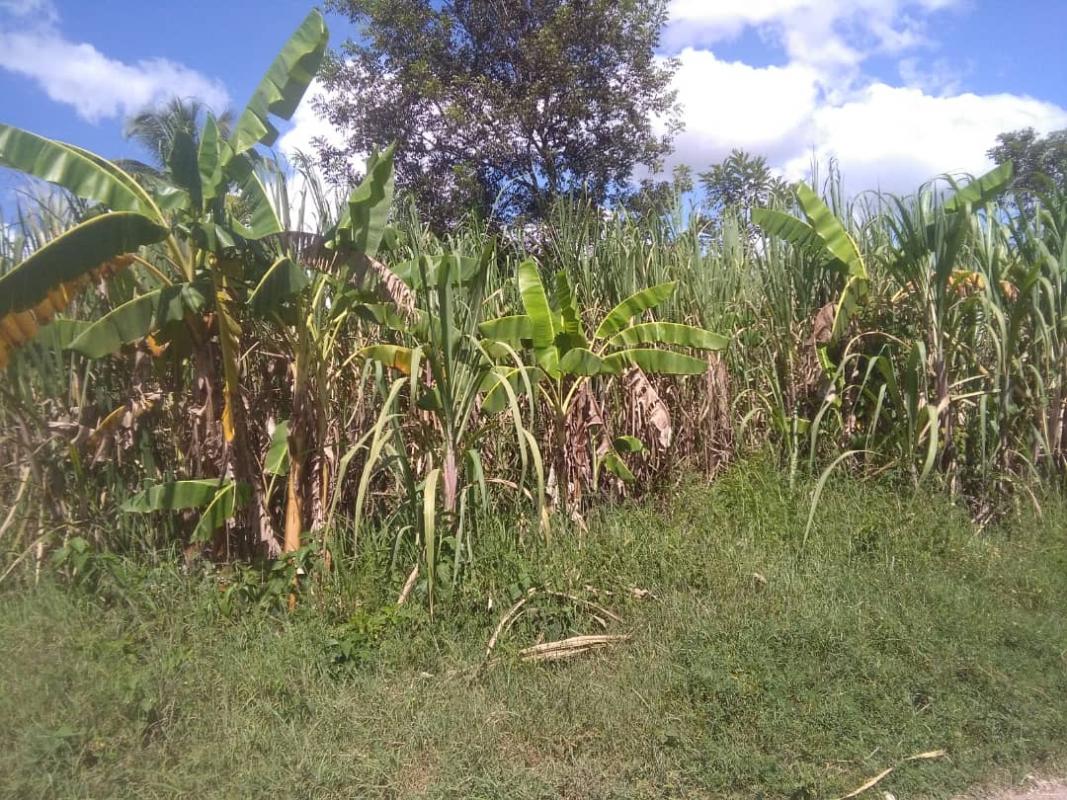- Home
- Worldwide
- CIRAD worldwide
- Projects
- BID Haïti St-Michel project
Agricultural research-training-extension programme on adaptation to climate change in the Saint-Michel-de-l’Attalaye zone - BID Haïti St-Michel

Sugarcane-banana intercropping: Farmers in the study zone already practise novel combinations as a way of coping with variability and climate change © B-Paul, Quisqueya University
Issues
The global climate risk index, which analyses the impact of extreme climate events in terms of loss of human life and the economy, identified Haiti as one of the three countries most vulnerable to climate change between 1996 and 2015. The scenarios foresee agricultural production conditions becoming even less favourable, notably because of an increase in average annual temperatures of 1.5-1.7°C and a drop in rainfall of between 10.6 and 35.8% by 2060. The country’s vulnerability to climate change is compounded by the development challenges it already faces. This also applies to the municipality of Saint Michel de l’Attalaye in northern Artibonite, a major farming region in the country. Maize, sorghum, pigeon peas, beans and sugarcane are the main crops grown in St Michel, covering more than 85% of its agricultural area. Fruit growing and cattle rearing also play a central role in agricultural development locally.
Making agricultural production systems more resilient means proposing innovative technical solutions tailored to local constraints and requirements, and building capacity among producers and institutional players.
Description
The project combines agro-technical and economic diagnoses, co-design of innovative production systems with farmers, creation et assessment of varieties resilient to climate change and resistant to emerging pests and diseases, improved fodder production and strengthening of the local innovation system.
Five main lines of work are planned:
- Socio-agro-technico-economic diagnosis
This will characterize the range of agricultural production activities practised locally and the technical and economic performance of farms, to serve as a technical benchmark for the project, of use in the other lines of work.
- Co-design of scenarios for improving farm operations and performance
This will help farmers analyse the feasibility of technical changes and their performance on a farm scale.
- Using varietal innovation and cropping systems to boost resilience to climate risks
This will involve working with farmers to test new sorghum, maize, rice and pulse varieties, using cropping practices tailored to their production conditions and targets, to boost the agronomic and economic performance of their farms as they attempt to adapt to climate change.
- Innovations to make livestock production more resilient to climate risks
This will improve the quality of the fodder available, by recycling agricultural by-products.
- Extension and institutional support of local innovation mechanisms
This will involve helping the local extension workers with whom the project will be working with their working methods. It will improve the local innovation system by testing a range of tools for rolling out innovations to the municipality’s producers.
Expected impacts
- Producers’ resilience and capacity to adapt to climate change will have improved, thanks to the rollout of innovative technical solutions.
- Managers (university, extension and agricultural development staff) will also have been able to build their skills through action research-training operations led by researchers from Haiti and elsewhere.
Contract partners
- Ministry of Agriculture, Natural Resources and Sustainable Development (Haiti)
- Quisqueya University (coordinator)
- Fondation Chibas-Haiti























